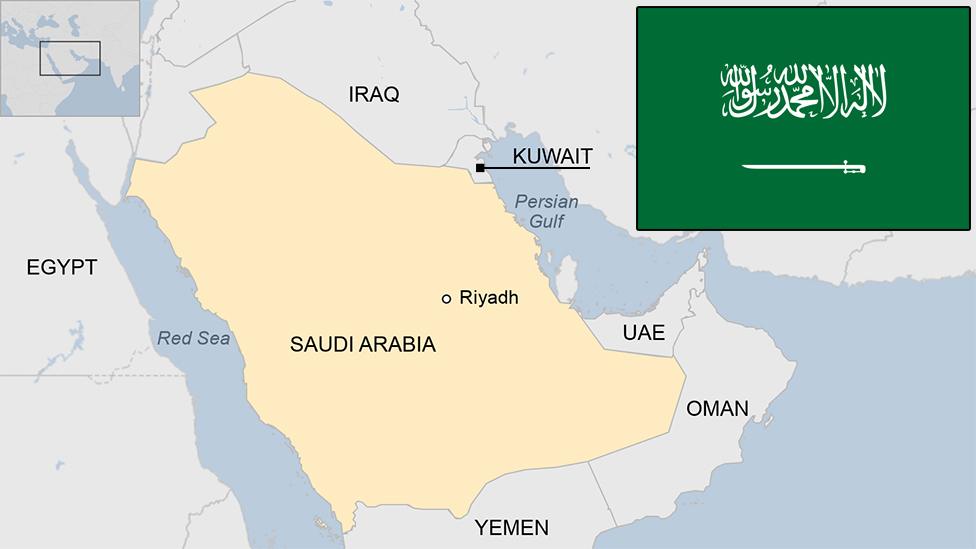Saudi king's death dominates regional media
- Published
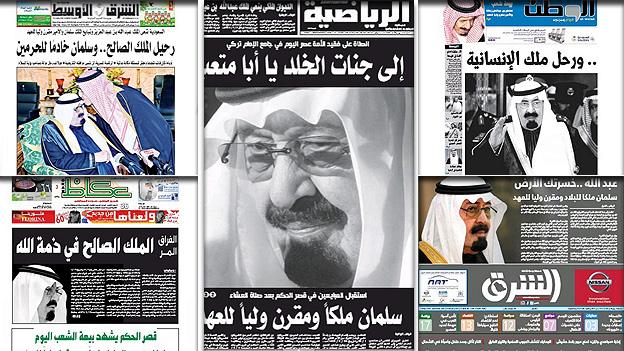
Some Saudi front pages opted for black-and-white images
King Abdullah's death tops the news agenda across the Middle East, with a tone of respectful grief dominating both traditional and social media.
There were, however, some voices on Twitter critical of his legacy, and Iranian TV had some negative things to say about Saudi Arabia's hereditary monarchy system.
'Righteous king'
Ukaz, external, Saudi Arabia's largest-circulation newspaper, is simply headlined: "Righteous king passes away".
"We shed tears and pray for you", reads the front page of the pro-government Saudi daily Al-Watan, external, with the king's face highlighted on a black background.
His death is "the saddest news ever", says an article headlined: "King of Humanity". It adds that his reign was marked by a "domestic qualitative shift, and a bias towards right and justice".
Al-Arabiya, external, the Saudi-funded pan-Arab TV channel, suspended its usual programming to provide reaction from world leaders.
Egypt's state-owned Nile News TV, external ran a black ribbon across the top of the screen, and all of its presenters were dressed in black.
There is widespread praise in the regional media for Abdullah's achievements.
The Saudi-owned pan-Arab paper Al-Sharq al-Awsat, external says the late king mastered the "art of diplomacy, successful administration and a humanitarian presence".
Egyptian state-run paper Al-Ahram, external says that under King Abdullah, Saudi foreign policy was marked by "commitment to the causes of the Arab nation, especially the Palestinian cause", while Sky News Arabia, external noted the king's role in supporting the Syrian opposition.
Kuwaiti paper Al-Qabas, external says that great strides made in the economy, education, health, society, transportation and agriculture during his reign have placed Saudi Arabia "among the advanced countries".
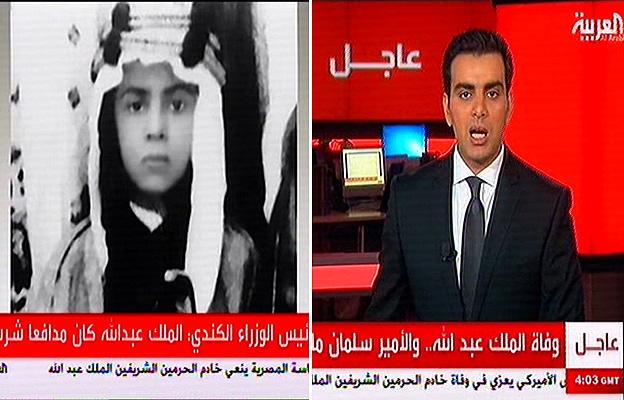
Al-Arabiya TV devoted their coverage to the king's death, including this photo of him as a child
'Turmoil'
There is less approving coverage in the Iranian media. TV and radio stations in the Shia state have criticised the king's policies, and discussed rumours of alleged conflict within the royal family.
Iran's Tasnim, external news agency asked whether the hereditary monarchy in Saudi Arabia can continue for "eternity", saying that although there was a peaceful transfer of power this time, there are "disagreements about recent developments in this country, which Saudi princes are trying to hide".
A Lebanese newspaper, Al-Safir, external, worries that the king's death comes at a "sensitive moment" for the region, which it says is now facing "the most violent political turmoil ever".
Yemeni paper Al-Wasat, external publishes a "CV" of the new monarch, King Salman, saying that he may take a more cautious line than his predecessor on social reforms and democracy.
But UAE-based Gulf News, external cites analysts as saying that the new king is expected to continue Abdullah's policies. It says he is likely to stick to Opec's strategy of keeping oil output steady to protect the cartel's market share from rival producers, even as energy markets face some of the biggest shifts in decades.
Prayers on social media
On Arab social media, at least five Arabic hashtags are trending on the king's death. The hashtag #death_of_Saudi_king was used more than 200,000 times on Twitter in the first seven hours after the announcement, with many people describing it as like losing a father figure.
Prominent Saudi Twitter user @shugairi, external updated his account with a simple condolence message reflecting the prayerful comments of many social media users: "To Allah we belong and to Him is our return".
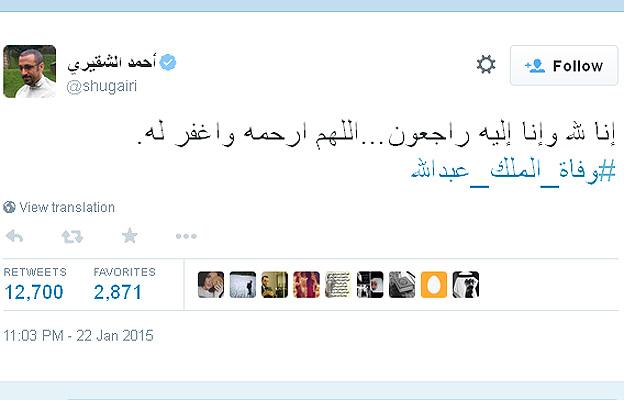
But a small minority of voices struck a more critical tone, such as user @Aboobeida66, external, who says: "Al-Saud [the ruling family] does not have the right to be in power".
Another Twitter user says that as long as people continue to support the Al-Sauds, they will remain oppressed. "We hope with his death things will change. But we will be patient," tweets @abooyasseen, external.
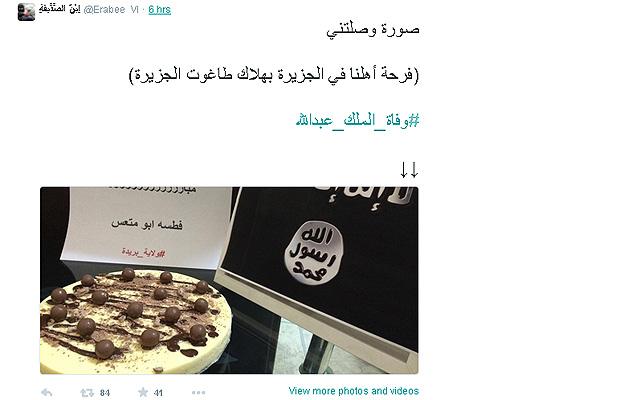
"I've received this picture showing the delight of our people in the [Arabian] Peninsula at the perishing of the tyrant" reads this tweet, along with a picture of the jihadist black banner
Meanwhile, jihadists on Twitter are celebrating the king's death and mocking his close ties with the West. Some have posted pictures of cakes and sweets which they say have been shared by Saudis on hearing the news.
BBC Monitoring, external reports and analyses news from TV, radio, web and print media around the world. You can follow BBC Monitoring on Twitter , externaland Facebook, external.
- Published23 January 2015
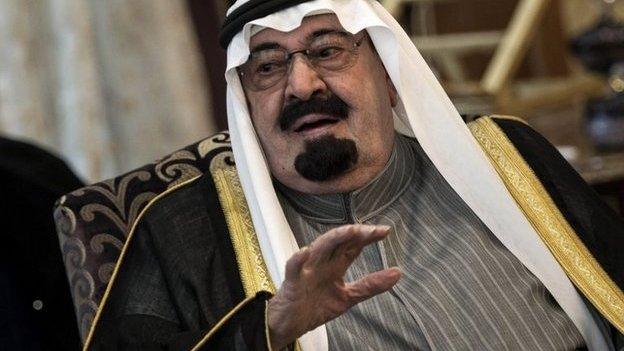
- Published10 March 2020
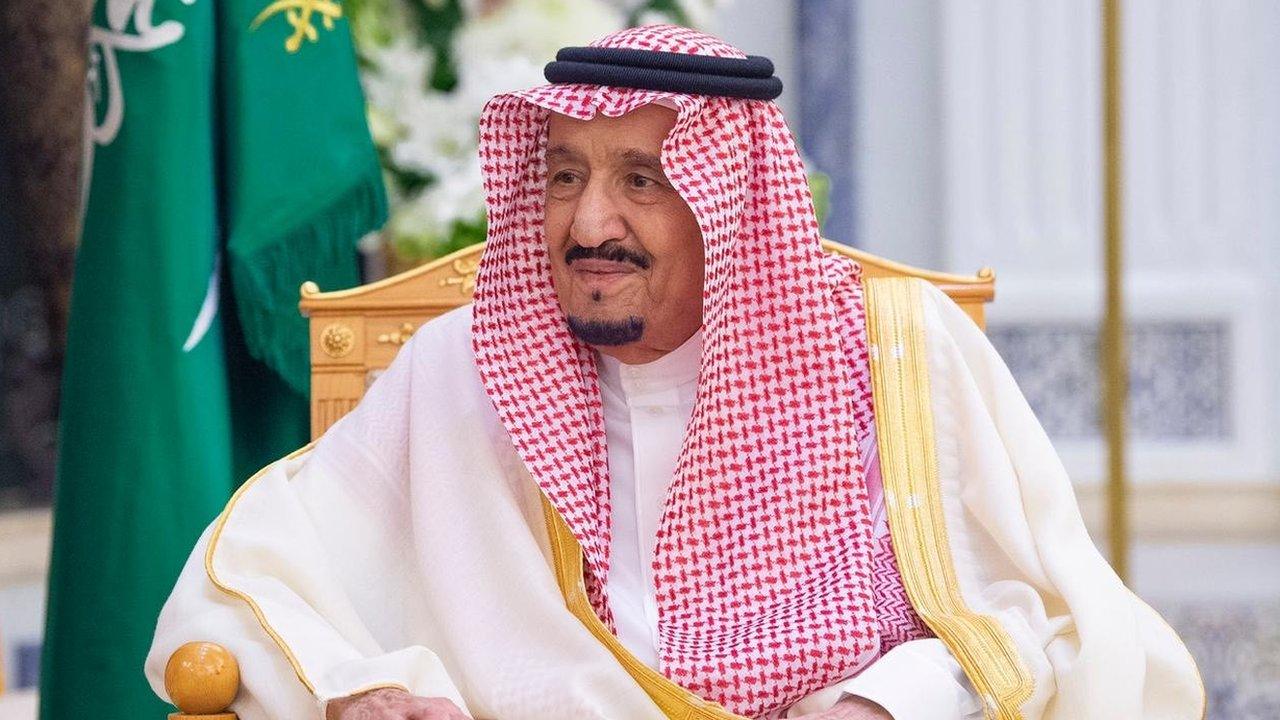
- Published23 January 2015
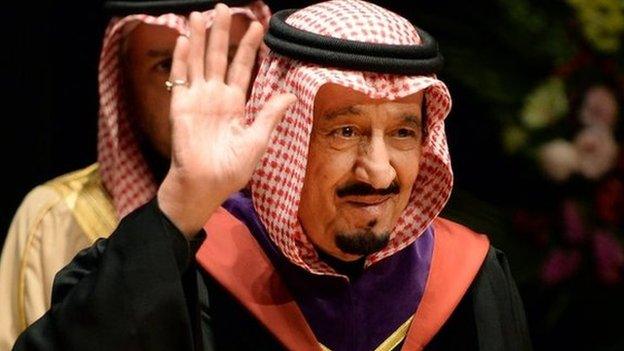
- Published29 August 2023
